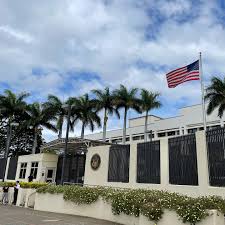
Costa Rica increases tourist visa duration to 180 days.
The government of Costa Rica has recently increased the permitted duration of stay for foreign tourist visas. The maximum stay period has been extended from 90 days to 180 days. This new regulation, which became effective in September 2023, is applicable to individuals with passports from Visa-exempt countries, which include the United States, Canada, and the majority of European nations.
The choice to extend the approved duration of tourists’ stays resulted from collaborative discussions with the National Chamber of Tourism (CANATUR). For quite some time, CANATUR has been advocating for an extension of the former 90-day limit, arguing that it didn’t provide visitors with adequate time to fully explore all the attractions that Costa Rica has to offer.
Jorge Gamboa of CANATUR remarked, “The National Chamber of Tourism emphasized that the previous residency and stay regulations were insufficient in promoting substantial tourist spending and engagement.

ENHANCING TOURISM REVENUE AND ATTRACTION.
The projected extension of the 180-day stay period is expected to provide a substantial uplift to Costa Rica’s Crucial tourism sector and its broader economy. Tourism serves as a substantial source of income for enterprises throughout Costa Rica. As tourists are allowed to stay in the country for a longer duration, they are likely to contribute more funds to hotels, dining establishments, tour agencies, transportation services, and other related sectors.
The modification in regulations also aims to heighten Costa Rica Allure as a destination, providing leisure visitors with more time to discover its wealth of natural treasures, ranging from beautiful beaches to lush rainforests and impressive volcanoes. With an additional six months, tourists can immerse themselves more fully in the renowned Pura Vida Lifestyle.
ATTRACTING REMOTE PROFESSIONALS.
In addition to vacationers, the extended 180-day stay period makes Costa Rica more appealing to digital nomads and other remote workers seeking to live in this tropical country for extended durations. Previously, digital nomads were limited to a 90-day stay before requiring a visa. Now, they can stay for up to six months on a tourist visa before needing to explore other visa options.
The government envisions that this adjustment will establish Costs Rica as a premier choice for remote professionals who contribute to the economy through extended stays.
Nevertheless, there is debate among experts regarding whether a 180-day period is adequate to encourage digital nomads to become permanent residents.
On the whole, the government is of the opinion that the benefits of heightened tourism and foreign expenditure outweigh any concerns about discouraging long-term settlement. This fresh set of rules is designed to bolster business and employees reliant on tourism by drawing in a greater number of international visitors who are keen to embrace the Pura Vida Lifestyle.
ADVANTAGES FOR COSTA RICA’S ECONOMY AND CULTURAL ENRICHMENT.
Tourism contributes more than 8% of Costa Rica’s Gross Domestic Product, serving as a pivotal catalyst for economic well-being. By encouraging tourists to prolong their visits, the 180-day policy is anticipated to bring about substantial financial benefits. Increased tourist expenditures will bolster employment in the hotel, restaurant, transportation, tour operator and retail sectors across Costa Rica.
Extended interactions between local residents and foreign visitors offer valuable cultural experiences. By allowing tourist to delve deeper into the communities, they can gain a richer understanding of the Costa Rican way of life. These interactions promote increased cross-cultural awareness and mutual understanding.
Although this 180-day stay policy brings benefits, the government is aware of the challenges it poses, such as the need for sufficient infrastructure and preventing visa overstays. In general, authorities perceive this policy as a positive development that contributes significantly to tourism, Costa Rica’s economy, and the exchange of cultures.




